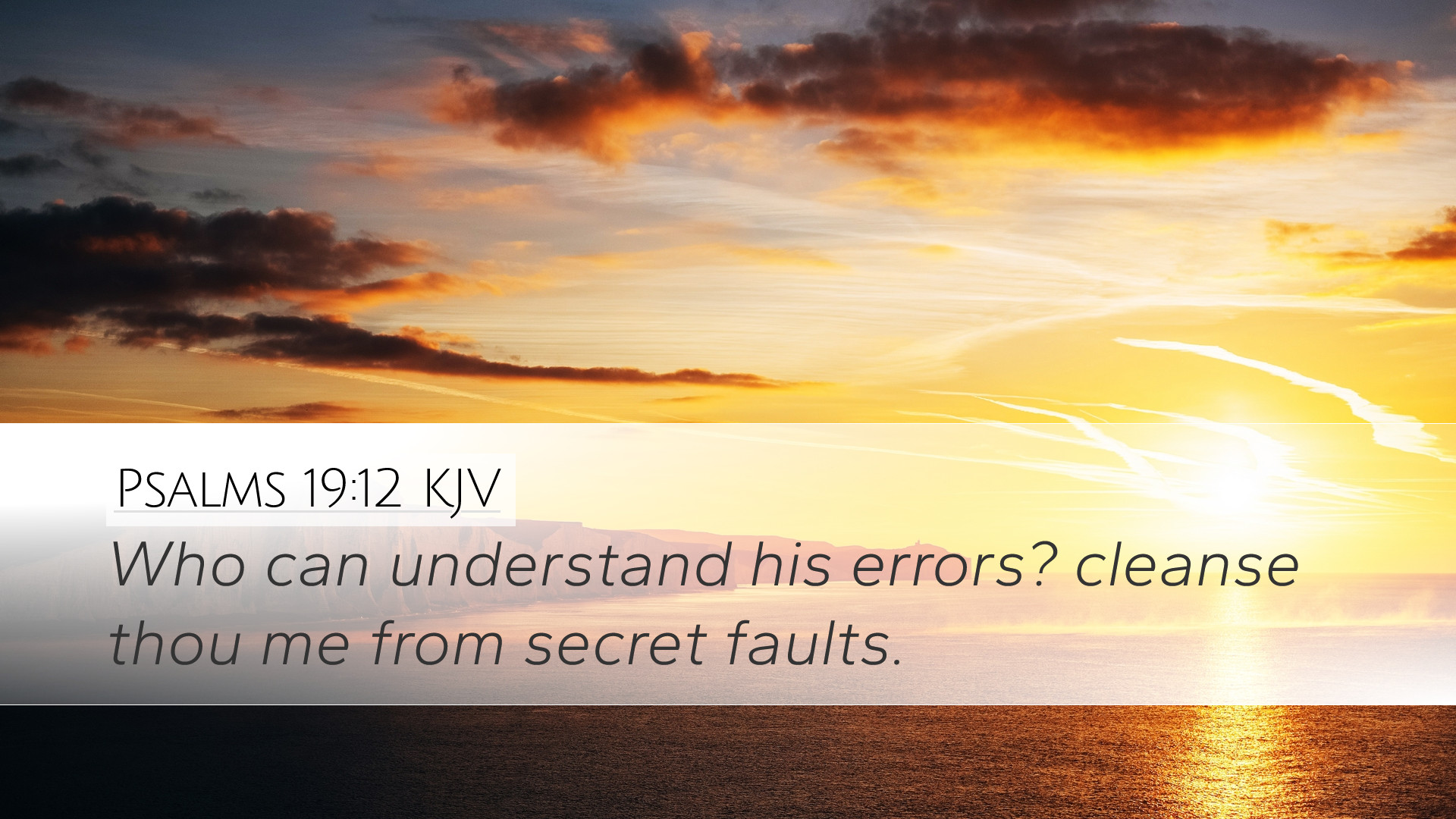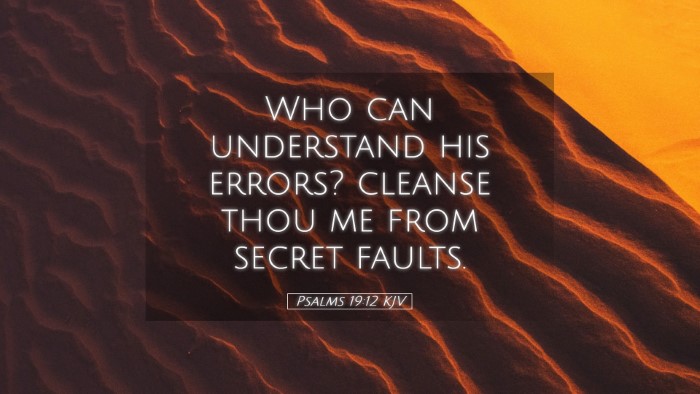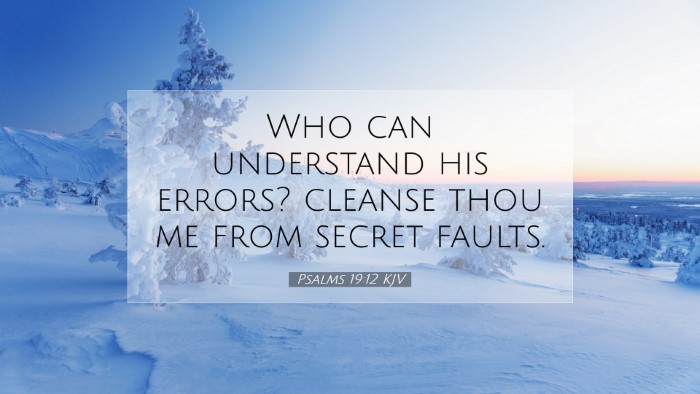Commentary on Psalms 19:12
Bible Verse: Psalms 19:12 - "Who can understand his errors? Cleanse thou me from secret faults."
Introduction
This verse from the Psalms encapsulates a profound reflection on human fallibility and the need for divine cleansing. The psalmist here expresses a deep awareness of his imperfections, an admission that serves as a foundation for spiritual growth and divine assistance.
Context and Structure
Psalms 19 is a rich and varied psalm attributed to David. It consists of two principal sections: the first that praises God’s creation and the revelation of Himself through nature, and the second, a personal reflection on the law of the Lord and an acknowledgment of His holiness. Psalm 19:12 serves as a pivotal point where the author transitions from observing the majesty of God in creation to recognizing his own inadequacies and the necessity for divine intervention.
Verse Breakdown
- “Who can understand his errors?”
- Human Limitation: The psalmist recognizes the complexity of human sinfulness.
- Self-Reflection: This question emphasizes the difficulty of self-knowledge and the propensity for self-deception.
- Ultimate Accountability: The phrase implies that it is only through God's revelation that one can truly comprehend their faults.
- “Cleanse thou me from secret faults.”
- Seeking Purity: This is a plea for divine cleansing from unconfessed sins that may hinder one's relationship with God.
- Recognition of Hidden Sins: The term “secret faults” indicates sins that may not be evident, even to oneself, highlighting the necessity of divine guidance.
- The Role of Confession: This reflects the Biblical principle that confession is a vital step towards healing and restoration.
Theological Insights
From a theological perspective, the verse underscores the themes of repentance, divine grace, and the human condition.
- Repentance: The psalmist's acknowledgment of his errors sets a precedent for humility and the necessity of contrition when approaching God.
- Divine Grace: The plea for cleansing signifies the belief in God's willingness to forgive and restore, thus reinforcing the commitment to His mercy and grace.
- The Human Condition: This verse reflects the Biblical understanding that all have sinned and are in need of divine intervention for correction and guidance.
Insights from Public Domain Commentaries
Matthew Henry’s Commentary
Matthew Henry emphasizes the importance of self-examination and awareness of one's own transgressions. He points out that often we are blind to our faults, thus we must seek God’s insight into our lives. He notes that there are sins of omission and commission that might escape our attention and underlines the necessity of living in humility before God.
Albert Barnes’ Notes on the Bible
Albert Barnes elaborates on the notion of 'errors' as those mistakes and oversights that are inherent to human nature. He addresses the complexities of understanding ‘secret faults’, suggesting that these refer to both known and unknown sins that can create barriers between humanity and God. His commentary urges believers to earnestly seek God's help in recognizing and overcoming sins that they may not even be aware exist.
Adam Clarke’s Commentary
Adam Clarke focuses on the plea for cleansing, articulating profound insights into the nature of God's forgiveness. He propounds that the acknowledgment of one's faults is the stepping stone towards spiritual liberation and renewal. Clarke also examines the phrase "secret faults," suggesting a journey toward holiness requires an openness to allow God to cleanse the deeply buried imperfections within the soul.
Applications for Contemporary Believers
The teachings from Psalms 19:12 resonate deeply with modern audiences, emphasizing the following applications:
- Introspection: Believers are encouraged to develop habits of introspection and prayer, asking God for insight into their hearts and motivations.
- Accountability: Engaging with a community that fosters accountability can aid in identifying personal faults and promoting spiritual growth.
- Dependency on God: The necessity of relying on God’s grace for spiritual cleansing must be embraced, reinforcing faith in His transformative power.
Conclusion
Psalms 19:12 offers a profound reflection on the nature of sin, the importance of confession, and the assurance of God’s cleansing power. As believers delve into this verse, they are invited to embark on a journey of self-awareness and divine pursuit. By recognizing their limitations and seeking God’s grace, they may experience the transformative power of His forgiveness and the restoration of their hearts.


